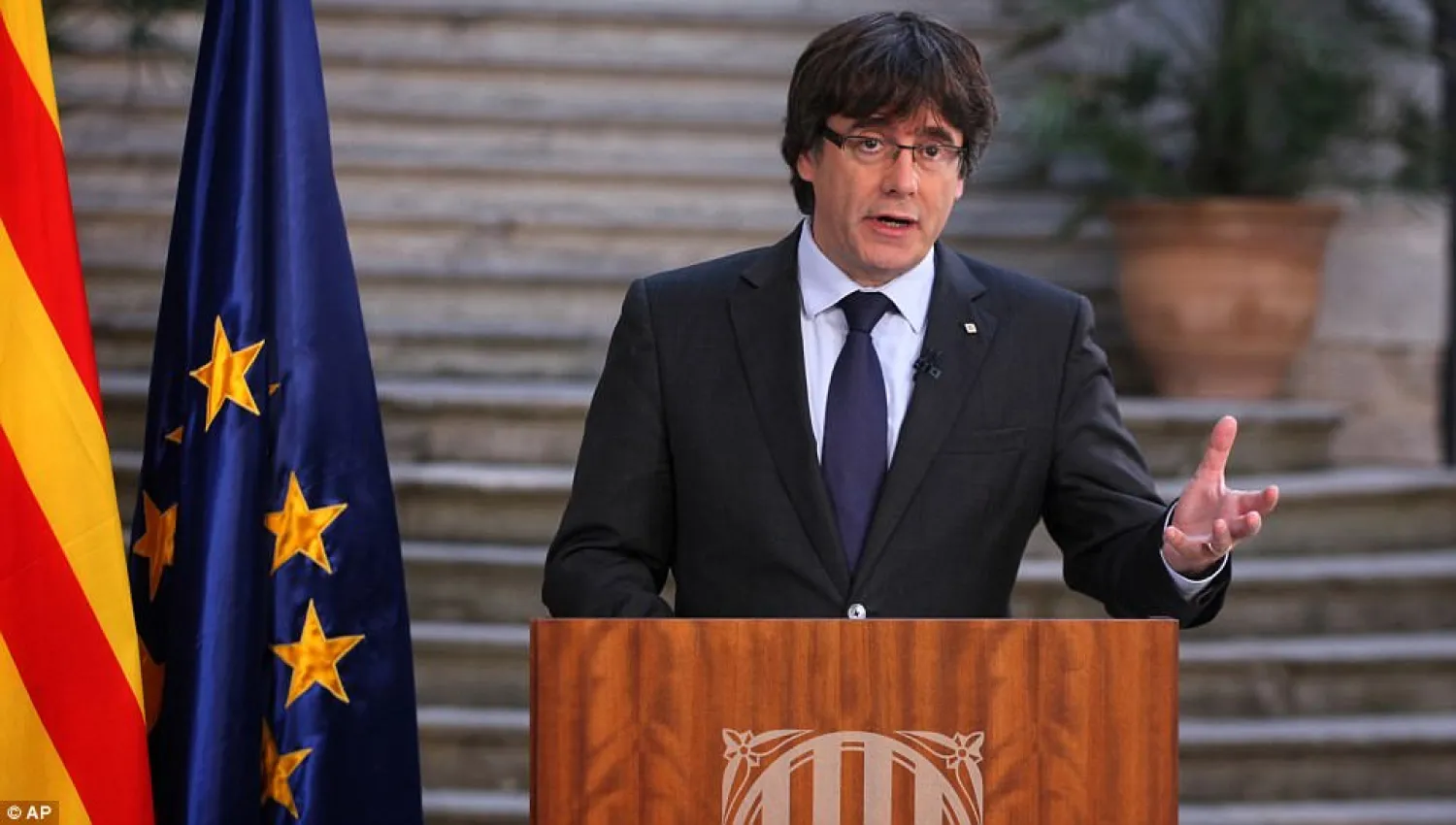Hours after Madrid dissolved the Catalan government, it appears as though the separatist leader Carles Puigdemont is still executing his duties, in a blatant challenge to the Spanish Prime Minister's decision.
Sacked Catalan president Puigdemont called on Saturday for peaceful “democratic opposition” to the central government’s takeover of the region.
“We need to have patience, perseverance and perspective,” Puigdemont said in a brief statement which he read out in the Catalan city of Girona.
“That is why we are clear that the best way of defending the conquests achieved until today is democratic opposition to the application of Article 155, which is the consummation of a pre-meditated assault on the will of the Catalan people, who, in a majority fashion and over many years, do feel that we are a nation of Europe.”
Puigdemont added: “We have to do this safeguarding ourselves from repression and threats, do it without ever, ever, at any time, deviating from civic and peaceful behavior. We don’t have nor do we want the justification of force. Not us. I call on you for this convinced that this demand is what the whole world expects, also outside of our country.”
As for the invocation of Article 155, Puigdemont said that “these are decisions that are contrary to the will expressed by the citizens at the polls.”
Meanwhile, Madrid delegated Spanish deputy prime minister Soraya Saenz de Santamaria the powers of the Catalan presidency, and she will coordinate with central government ministry undersecretaries to take over the responsibilities of Catalan ministries.
The government in Madrid also sacked the head of the Mossos d'Esquadra regional police, Josep Lluis Trapero, on Saturday. Spain’s High Court barred Trapero from leaving the country and seized his passport as part of an investigation for alleged sedition, although it has not ordered his arrest.
Trapero is replaced by Ferran Lopez, a move that observers viewed as non-escalatory especially that Ferran is the second-man in charge in Catalonia police.
El Pais newspaper reported that the Spanish justice system is monitoring Puigdemont in case of violation of the law which could result in his apprehension and prosecution. In addition, any member of the former Catalan government will be subject to legal actions if they executed their former official duties or obstructed the authorities.
Catalan media reported that another parliament could be formed and Catalan leaders are in the process of establishing new entities which could lead the way into the formation of Catalan State.
Observers warned that the current situation in Catalonia could lead to dangerous repercussions if the people of Catalan revolted against each other between those who support the independence and those against it.
Meanwhile, Vatican announced Pope Francis is worried about Europe's fragmentation. Cardinal Secretary of State Pietro Parolin, Vatican's second-in-command, spoke at a conference in Rome organized by the association of European Catholic bishops (COMECE).
"The outcome of the British referendum last year, and the tendency to fragmentation sweeping the continent, have led the Holy Father to consider the urgent need to promote a more wide-ranging and focused reflection on Europe," Parolin said.
Pope Francis called on European Union leaders to create employment, especially for young people, welcome migrants, work for peace, and told Christians to "view politics as a lofty service to the common good, not a platform for power."
"Extremist and populist groups are finding fertile ground in many countries; they make protest the heart of their political message, without offering the alternative of a constructive political project," Francis reiterated.
Francis warned that migration cannot be an indiscriminate and unregulated process, but neither can it lead to walls of indifference and fear. He urged migrants to learn, respect and assimilate the culture and traditions of the nations that welcome them.
Francis has not recently commented on the Catalonia crisis, although a Spanish Catholic magazine claimed this month that the Pope told the Spanish ambassador to the Vatican he was against Catalan independence.
Chair of Europe Parliament’s foreign affairs committee David McAllister ruled out any possibility of EU mediation in the ongoing struggle in Spain.
Commenting on the issue, McAllister stated that Catalonia is a case of its own. He gave an example of the possible Scottish independence in 2014, explaining that he doesn't believe any separatist movement will go that far.
“But another argument against the involvement of the EU, or the EU commission is that here, of course, this could be a precedent for other cases. If the EU starts negotiating here. Facilitating a dialogue, there could be similar calls coming from Northern Italy, from Flanders in Belgium, or from Corsica and France," he confirmed.
McAllister said he understood some of the demands for autonomy across Europe but that this differed from outright separatist movements, adding: “Honestly, I understand the wish of people having strong regions in Europe and I strongly believe in a Europe of nations, with strong regions.”
Meanwhile, European and international leaders supported Madrid in its decision against the independence. European Parliament's president Antonio Tajani tweeted on his official account that no one will recognize Catalonia as an independent country.
Tajani said Catalonia's independence referendum was illegal and state of law should be restored. He also spoke against EU mediation, saying the crisis is an internal Spanish issue.









